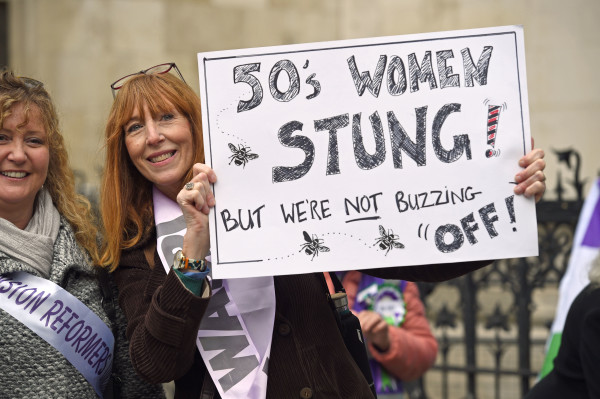

Campaign group Women Against State Pension Inequality (Waspi) has shared an open template letter to help women lobby their MPs after government failings in communication were confirmed by the ombudsman.
The template letter has been shared to help women who have received replies from their MPs to their queries, but may be confused by the response.
It sets out the women's position in relation to the PHSO findings but encourages them to rephrase it in their own words, to avoid “round robin letters”.
It comes after the campaign group said it expected a government response by now to the Parliamentary and Health Service Ombudsman’s finding of maladministration.
In its report, published last month, the PHSO said the DWP had communicated adequately the planned female pension age rises between 1995, when the change was first legislated for, and 2004.
But it had failed to act promptly after analysis in 2004 found the government's information campaign was not reaching the “people who needed it”, and recommended a targeted approach.
The letter template begins by setting out Waspi’s goals and what objective it is working towards.
It tells the women to explain to their MPs that Waspi has never campaigned for full restitution, or for the state pension age to revert to 60, and that it is not against equalisation.
Rather it is seeking compensation based on the PHSO findings.
Waspi stated: “He/she may be confusing the Judicial Review which was for a different campaign group with Waspi, and Waspi never claimed discrimination.
“It is entirely in the remit of the Ombudsman, if he finds injustice, to recommend a remedy.
“As a campaign Waspi has always known we were not informed properly, and we are now seeking fair and reasonable compensation for the impact the lack of notice has had on women affected.”
It goes on to explain that some MPs are referencing the government’s previous response when the state pension age change took place.
Waspi said: “Some MPs are including in their replies comment about 'government concessions of £1.1bn'. It should be noted that this didn’t compensate anyone for anything, it applied to both men and women.
“What it meant was that when the government accelerated the increase of the state pension age to equalise in 2018 rather than 2020, they delayed the accelerations very slightly. In effect the government didn’t save as much money from our state pensions as they hoped they would.”
It added: “This is an historic injustice, the largest case of maladministration ever brought to the Ombudsman, affecting 3.8 million women. The government knew they had failed to communicate the changes adequately and chose to do nothing about it.
"The time has come for this matter to be addressed by the government and fair and reasonable compensation to be offered to the women affected by the maladministration.”
As part of the template, the women are encouraged to agree to discuss the matter further when the ombudsman concludes stage two of its investigation.
The PHSO is now considering the impact of the failings, and what action should be taken to address them.
A DWP spokesperson said: “Both the High Court and Court of Appeal have supported the actions of the DWP, under successive governments dating back to 1995.
“In a move towards gender equality, it was decided more than 25 years ago to make the State Pension age the same for men and women.”
amy.austin@ft.com
What do you think about the issues raised by this story? Email us on FTAletters@ft.com to let us know



